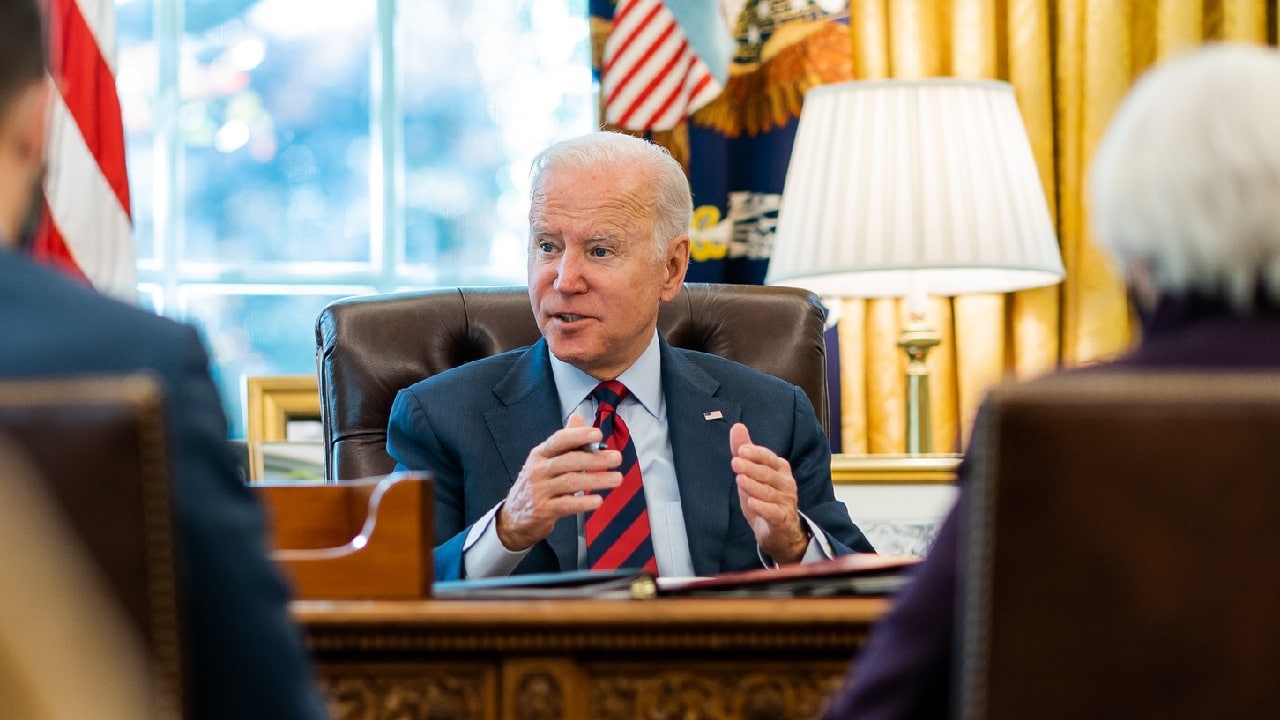There is much debate about the debt ceiling this week as President Biden and Congress continue to meet to attempt to reach an agreement on the $31.4 trillion cap on government spending reached back in January.
From the Constitutional arguments to the actual number (what does $31.4 trillion even look like?!?), the whole issue makes my head spin. I am not a legal or fiscal scholar. I am embarrassed to admit I have never balanced a checkbook save the occasional moments in the 90’s when the guilt in my head and my parents’ wagging fingers got the best of me.
Yet, admittedly, my lack of responsibility makes me more than a tad uncomfortable. It should make the government feel the same way.
I have read a range of opinions from both the left and the right. One question keeps plaguing me: how is the government held to a different set of fiscal responsibility standards than any household?
Understanding National Debt
In my attempt to grasp what is happening with the national debt, I consulted one of my favorite media sites that transforms complicated issues into simple to understand concepts with a dash of humor to lighten the mood a bit: Kite and Key Media.
The intro to their video spoke volumes (while simultaneously making me laugh out loud): “We bought the $*!%ing space station on a credit card???”
The video was produced back in June of 2022 when the debt was a paltry $23 trillion. At that amount, “if all that government debt got called in tomorrow, every household in America would get a bill for more than $175,000,” according to the Manhattan Institute. Ouch.
I know there are legitimate reasons for incurring debt. I also understand that a certain amount of debt can be beneficial. Charging something and paying it off over time demonstrates a level of fiscal responsibility and aptitude for budget management.
Yet when the burden of carrying the debt due to increasing interest rates on that debt becomes heavier than the freedom a limited amount of debt allows, the tradeoff is untenable.
I get that the federal deficit is not so simple. But it’s not that complicated, either.
The debt limit or ceiling is a number set by the government to cap what it can spend. It does not authorize new spending commitments. It simply allows the government to finance existing legal obligations that past Congresses and presidents have made in the past. The Treasury Department claims on its website: “Failing to increase the debt limit would have catastrophic economic consequences.”
Maybe that’s something previous administrations (ALL of them) should have thought about prior to passing legislation.
To me, it’s like wanting a pair of Manolo Blahnik’s believing I will have the future funds to pay them off. While I expect my earning potential to increase due to a new graduate degree, it would probably be smarter to NOT spend that money given what I know about my current financial status (student loans) and what I can realistically predict in the future.
While the consequences of defaulting on the country’s loans could be catastrophic, this is the result of continuing to spend money like a drunken sailor for decades without any consequence.
Loans Come Due
Eventually, payback is demanded. Every good mob movie tells the timeless truths that politicians on both sides, but particularly progressives, seem so willing to overlook: actions have consequences. There is no such thing as a free ride. If it looks too good to be true, it is. You can’t keep digging other people out of a hole and expect them to learn how to do it for themselves. Life is full of sacrifices.
While rudimentary, these truths seem to apply whether one is discussing the debt ceiling, homeless policy, or health care.
I can confirm there is a sort of unease with spending money you don’t have. Credit loans are a great idea when you need assistance to get through some rough patches. But when those rough patches become a habit of spending beyond your means and you see the numbers increasing on the wrong side of the balance sheet, it begins to weigh on your conscience and riddle you with anxiety.
The United States’ debt does not work any differently than personal debt, although it’s tough to say that the government has a conscience about it. Maybe that’s the problem. Maybe it should. Maybe we should.
At this point the blame game seems pointless. We could go back all the way to the beginning of FDR’s New Deal or LBJ’s Great Society that established large government programs such as Social Security as well as their expansions, but those people are long gone so it won’t do anyone any good. No matter what side of the political aisle we sit on, we’re all going to have to tolerate being a little unhappy – and maybe a little less wealthy – for the foreseeable future.
But, as the Kite and Key video says: “You know what’s worse? Pretending like this isn’t happening. Because the longer we wait the deeper the hole gets. Which means the choices we have to make only get harder. Making tough decisions now will spare us even more pain later.”
We have to stop the bleeding now. Which is exactly what Kevin McCarthy and Republicans are trying to do.
MORE: Kamala Harris Is a Disaster
MORE: Joe Biden – Headed For Impeachment?

